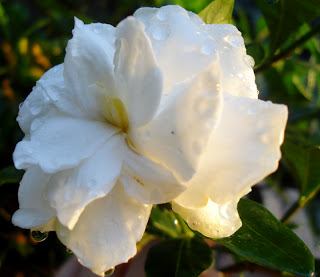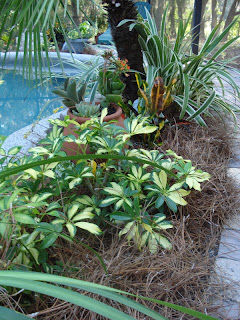 |
| Photo courtesy Kathy Ricca |
Great Blue Heron
I drive past him each day in the swamp where he stands
on one leg, hunched as if dreaming of his own form
the surface reflects. Often I nearly forget to turn left,
buy fish and wine, be home in time to cook and chill.
Today the bird stays with me, as if I am moving through
the heron’s dream to share his sky or water—places
he will rise into on slow flapping wings or where
his long bill darts to catch unwary frogs. I’ve seen
his slate blue feathers lift him as dangling legs
fold back, I’ve seen him fly through the dying sun
and out again, entering night, entering my own sleep.
I only know this bird by a name we’ve wrapped him in,
and when I stand on my porch, fish in the broiler,
wine glass sweating against my palm, glint of sailboats
tacking home on dusky water, I try to imagine him
slowly descending to his nest, wise as he was
or ever will be, filling each moment with that moment’s
act or silence, and the evening folds itself around me.
American Life in Poetry is made possible by The Poetry Foundation (www.poetryfoundation.org), publisher of Poetry magazine. It is also supported by the Department of English at the University of Nebraska-Lincoln. Poem copyright ©2010 by T. Alan Broughton from his most recent book of poetry, A World Remembered, Carnegie Mellon University Press, 2010. Reprinted by permission of T. Alan Broughton and the publisher. Introduction copyright © 2009 by The Poetry Foundation. The introduction's author, Ted Kooser, served as United States Poet Laureate Consultant in Poetry to the Library of Congress from 2004-2006.
























.jpg)


